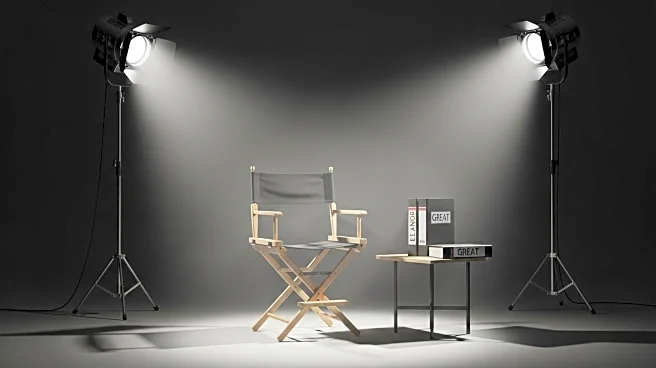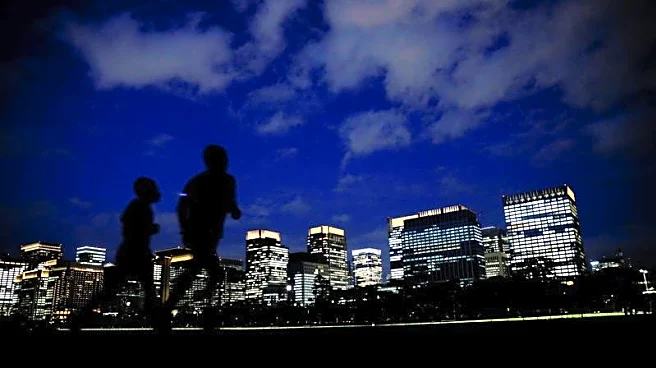What is the story about?
What's Happening?
Oscar-nominated actors Scarlett Johansson and June Squibb are promoting their new film, 'Eleanor The Great.' In this film, Johansson makes her directorial debut, exploring a narrative where a woman begins to pass off her deceased friend's Holocaust survival story as her own. The film delves into themes of identity and appropriation, offering a unique perspective on personal and historical narratives. Additionally, Grammy-winning producer Mark Ronson shares insights from his memoir 'Night People,' which reflects on the '90s club scene in New York City. Ronson, who continues to DJ, contrasts his past experiences with his current lifestyle, highlighting changes in personal priorities and health.
Why It's Important?
The release of 'Eleanor The Great' marks a significant moment in Scarlett Johansson's career as she transitions from acting to directing, potentially influencing her future projects and the film industry. The film's exploration of sensitive themes such as Holocaust survival stories and identity appropriation may spark discussions on ethical storytelling and representation in media. Mark Ronson's memoir offers a nostalgic look at the '90s club scene, providing cultural insights into a transformative era in New York City's nightlife. Both the film and the memoir contribute to ongoing conversations about personal and historical narratives, identity, and cultural evolution.
What's Next?
As 'Eleanor The Great' gains attention, it may lead to further discussions and critiques regarding its portrayal of historical events and personal stories. Johansson's directorial choices could influence her future projects and inspire other actors to explore directing. Mark Ronson's memoir might attract readers interested in music history and the evolution of nightlife culture, potentially leading to more public appearances and discussions about his experiences. The film and memoir may also prompt broader conversations about the ethical dimensions of storytelling and the impact of cultural shifts over time.
Beyond the Headlines
The film's narrative raises questions about the ethics of storytelling, particularly when dealing with sensitive historical events like the Holocaust. It challenges audiences to consider the implications of appropriating personal stories and the responsibilities of storytellers. Mark Ronson's reflections on the '90s club scene offer a lens into the cultural and social dynamics of that era, highlighting shifts in lifestyle and priorities over time. These narratives may influence public discourse on authenticity, memory, and the preservation of cultural history.
















